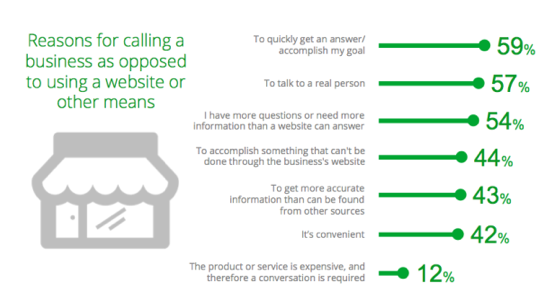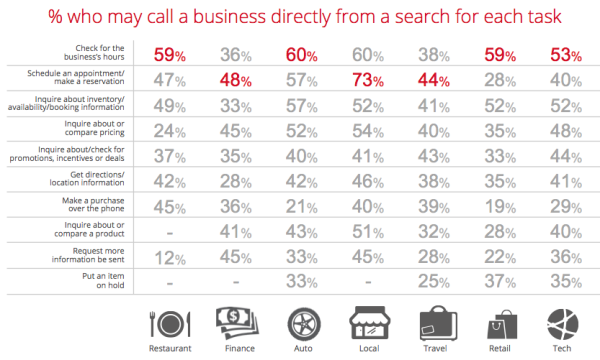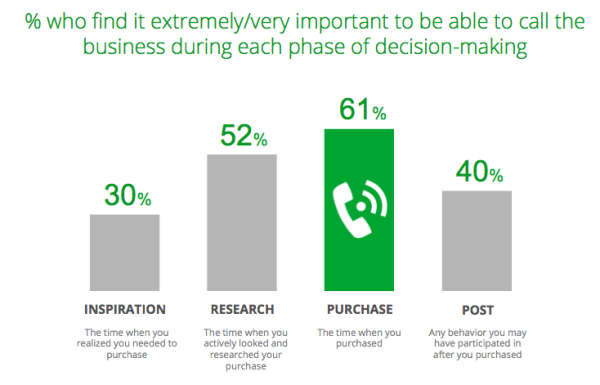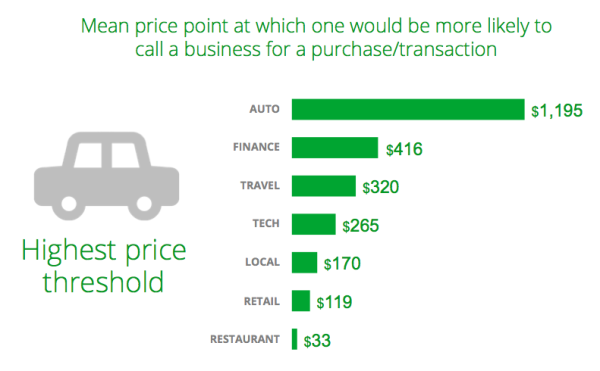Study: 61 Percent Of Mobile Callers Ready To Convert
As a marketer if you’re not making it easy for mobile users to call you, you’re losing business. A new survey of 3,000 US smartphone users, conducted by IPSOS on behalf of Google, underscores the critical role of calls in the mobile path to purchase. Almost two-thirds (61 percent) of survey respondents said that “click […]

Almost two-thirds (61 percent) of survey respondents said that “click to call is most important in the purchase phase of the shopping process.” And 70 percent of respondents said they had used the “call button” in Google search results.
Mobile search ads or business listings that lack phone numbers (or click to call buttons) will see business go to competitors. Nearly half (47 percent) of mobile search users said they would “explore other brands” if they didn’t quickly find phone numbers.
The logic is simple and relatively obvious: calls are seen by consumers as a way to get questions answered more efficiently. Mobile sites often fail to deliver against basic user information needs or can be frustrating to use (especially in an “on the go” context). Below is a graphic that shows the top reasons for calling a business.
Ironically the top reasons for calling could be addressed by better designed mobile sites. Business hours could readily be incorporated into rich snippets (memo to Google) or prominently displayed on mobile sites, which is an argument against responsive design. Scheduling can certainly be done in a mobile environment (see OpenTable). Inventory is the potential exception that still may require human interaction.
Below is a chart that elaborates upon the above and breaks down reasons for calling by vertical:
The study also found that calls happen at strategic times in the “customer journey.” Callers are typically the most qualified leads. Accordingly marketers and businesses that don’t make it easy for “ready to buy” consumers to locate phone numbers or initiate calls from mobile search results will potentially lose out to competitors.
The survey found that consumers are more likely to call a business for somewhat “higher consideration” items. So, in general, smartphone-based calls will tend to come from buyers who want to make larger value purchases.
Google makes the case that whether or not consumers ultimately call, ads with call extensions see 8 percent higher click-through rates over ads without phone numbers.
There’s a great deal more information, including a deep-dive by vertical available in the report, which can be obtained here.
Contributing authors are invited to create content for Search Engine Land and are chosen for their expertise and contribution to the search community. Our contributors work under the oversight of the editorial staff and contributions are checked for quality and relevance to our readers. Search Engine Land is owned by Semrush. Contributor was not asked to make any direct or indirect mentions of Semrush. The opinions they express are their own.







